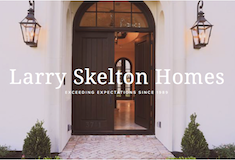In his latest blog post below, Mayor Friedberg discusses the City’s new Noise Ordinance:
In furtherance of our strategic emphasis on Quality of Life, Council labored through multiple hours-long workshops and a town hall meeting trying to figure out how to better regulate noise in the City. Just as the Planning and Zoning Commission and staff wrestled with it in developing their recommendations. It’s a notoriously difficult subject to legislate, and even after all the effort we put into it we probably still didn’t get it exactly right. As such, our newly adopted noise ordinance will be implemented as a pilot of sorts, with the express understanding—if not expectation—that we’re likely going to have to go back later and make some adjustments.
The basic gist is that our existing noise ordinance, on the books since 1974, is too indefinite and subjective to be meaningfully enforced: “It shall be unlawful for any person within the city, to make, continue, or cause to be made, permitted or continued any loud noise or any noises reasonably calculated to disturb, injure or endanger the comfort, repose, health, peace or safety of others within the limits of the city.” Sec. 22-4, Noise (1974). Whenever the police are called they’ll intervene as appropriate and ask the noisy person(s) to quiet down, and usually that resolves it. But without clear and measurable standards citations have rarely issued because they’re so unlikely to hold up in court.
To make it more objective, the new ordinance establishes quiet hours (9:00 p.m.-7:00 a.m. weekdays; 11:00 p.m.-7:00 a.m. weekends and holidays) and non-quiet hours, with specific decibel limits applicable to each, as measured at the complainant’s property:
Non-Quiet Hours Quiet Hours Residential 75 dB(A) 60 dB(A) Non-Residential 80 dB(A) 67 dB(A)
Additionally, during quiet hours certain activities are prohibited regardless of noise level, such as dumpster servicing, construction and lawn care. During non-quiet hours exceptions are made for the foregoing activities, for tree trimming and removal, and for noise (other than music, amplified or not) associated with approved outdoor events and at school and religious institutions, restaurants and private parks. Emergency, public safety and public works operations and facilities are of course exempt at all times. The minimum fine, previously $25, is updated to $150 for the first violation and $500 for subsequent violations, with each hour or portion thereof to constitute a separate offense for continuing violations.
Our new ordinance is generally modeled after other cities’, informed in each of its particulars by the several discussions among P&Z and Council. There’s an obvious balancing act between promoting quality of life and unduly restricting personal freedoms, and what we’ve adopted represents what we collectively (with some compromise) believe will best serve our community. We’ll see how things go over the coming months and tweak it further as needed.
Council is also sensitive to the concern that these noise regulations are potentially prone to abuse. This is about protection, not a tool to be weaponized against neighbors. Absolutely we want people to report legitimate complaints and the ordinance will be enforced. It is not, however, an invitation to tie up police resources when not necessary, and we expect neighbors to talk to each other first when possible. As staff monitors the implementation that’s one of the things they’ll be looking for.









